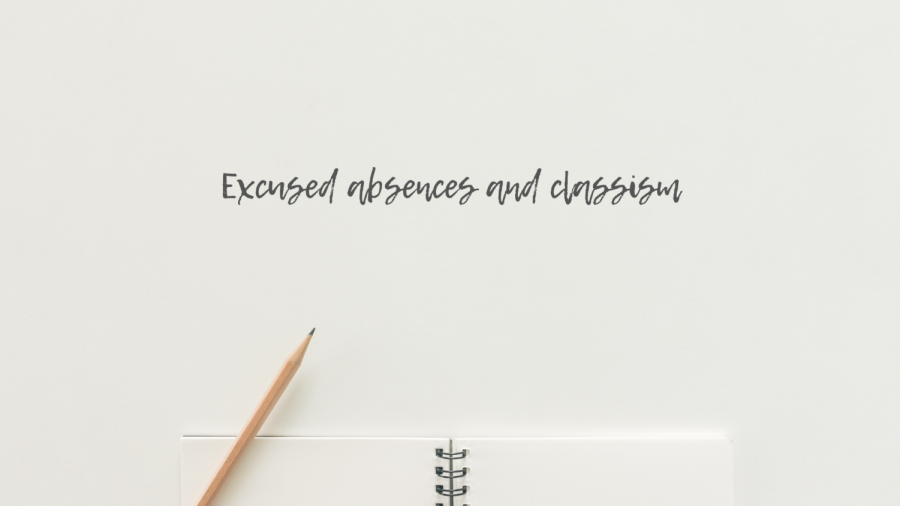Classism surrounding excused absences
In a country without universal healthcare, American educational institutions require students to present a doctor’s note to obtain an excused absence. This requirement burdens impoverished and uninsured families with young children prone to catching viruses from their classmates frequently due to their developing immune systems. Though truancy remains a prominent issue in the United States that educational systems combat effectively, schools should also work with families to ensure that low-class students will not receive unexcused absences when they can not attend school due to illnesses.
April 24, 2023
When students do not feel well enough to spend a full day in the classroom, they make a choice to stay home and risk their absence in their school’s attendance system. Fortunately, schools provide the option of excused absences that require documentation such as a doctor’s note—from dentists, medical physicians, psychiatrists and other health professionals— or when enduring an extreme illness that would cause harm to himself/herself or others if the said student attended school. However, school systems fail to factor in those who can not afford healthcare, never obtaining the required documentation for an excused absence despite their sicknesses. Nevertheless, certain NC members beg to differ.
“I stand for requiring a doctor’s note for an absence because it allows students to maintain a good record for their attendance. Having a doctor’s note validates your excuse and is genuinely a good excuse as well. The only part I do not like about this system is that a doctor’s note isn’t the most reliable since one can easily be forged. Although, I do like how having this note does excuse your absences,” NC senior attendance office mentee Richy Sacan said.
Institutions such as NC intend to combat and decrease truancy rates by providing an excused absence policy. When a student obtains five unexcused absences that do not meet the justification standards set by Cobb County School District, the principal will send a letter to the student’s parent(s). As Cobb County and other similar educational systems take on the problem of truancy with benevolence, the proposed guidelines fail to acknowledge those who cannot afford healthcare, therefore lacking equal access to doctors and other physicians. By providing such tight guidelines for excused absences, school systems discriminate against the poor and cater to the wealthy.
Unfortunately, children’s immune systems have not reached full development but still must fight off various infections due to their daily exposure to heaps of people. Consequently, the likelihood of children catching a sickness stands higher as compared to adults. Asking all students to present a doctor’s note for sickness-related absences when not all children hold equal access to healthcare causes havoc for millions of American families. In 2021, the census revealed that nearly four million people in the United States under the age of 19 do not hold access to health insurance. Though public insurance companies such as Medicaid exist, certain income amounts fall too high to qualify for public health insurance but too low to afford private health insurance.
“If I am being honest, I don’t really think there is a solution. In America, healthcare isn’t free. Fortunately, there are places that accept people without insurance and that do provide notes for absences,” Sacan said.
Even individuals with healthcare can not always see a doctor or need to see a doctor when feeling ill. Common, benign-natured, yet contagious viruses such as the common cold present symptoms such as fatigue, body aches, chest pressure and chills which can challenge student learning and comfortability in the classroom. Furthermore, these contagious viruses can easily spread to surrounding students, as the average departmentalized high school classroom in Georgia seats nearly 25 students. Though without a doctor’s note, their absences will remain unexcused.






